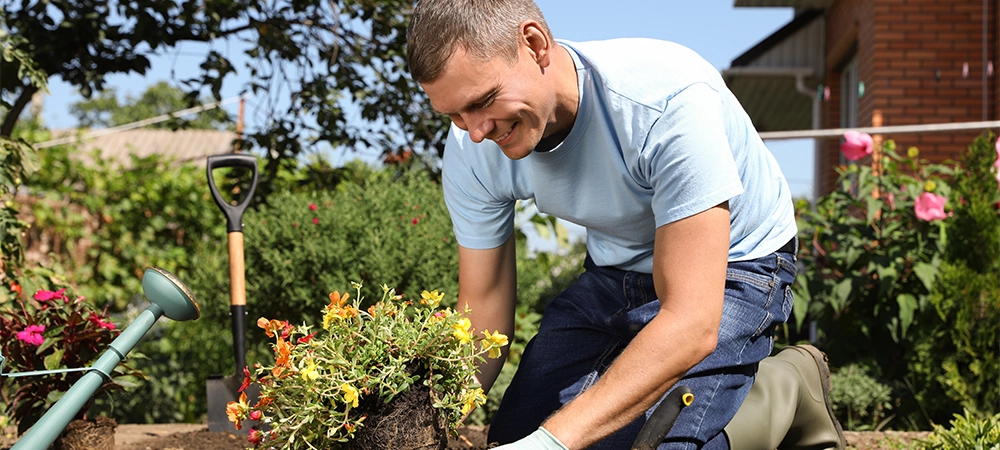In the journey of addiction recovery, individuals often seek holistic approaches that promote healing and well-being. Horticultural therapy, which utilizes gardening and plant-based activities as therapeutic interventions, has gained recognition as an effective method for supporting recovery. This blog explores how horticultural therapy can aid individuals recovering from addiction, its benefits, and how it fits into comprehensive treatment programs at Addiction Rehab Toronto.
What is Horticultural Therapy?
Horticultural therapy is a therapeutic practice that involves engaging individuals in gardening activities to improve their physical, emotional, and social well-being. This approach harnesses the nurturing aspects of working with plants, allowing participants to connect with nature while developing valuable skills. It is often incorporated into treatment programs to enhance recovery by providing a creative outlet and fostering mindfulness.
The Benefits of Horticultural Therapy in Recovery
1. Emotional Healing
Engaging with plants can evoke positive emotions, reduce anxiety, and alleviate depression. For individuals in recovery, horticultural therapy provides an opportunity to express emotions through the nurturing of plants, allowing for a therapeutic release of pent-up feelings. The act of caring for plants can lead to increased self-esteem and a sense of accomplishment.
2. Mindfulness and Presence
Horticultural therapy encourages mindfulness, as participants focus on the tasks at hand—planting, watering, and nurturing. This mindfulness practice can be particularly beneficial for individuals in recovery, helping them stay present and grounded. By immersing themselves in the natural world, participants can cultivate a deeper awareness of their surroundings and their emotional state.
Related Article: https://addictionrehabtoronto.ca/mindfulness-and-meditation-techniques-for-managing-weed-withdrawal-anxiety/
3. Skill Development
Gardening activities foster skill development, including problem-solving, patience, and responsibility. Participants learn to plan, plant, and care for their gardens, developing a sense of ownership and accountability. These skills can translate into other areas of life, promoting resilience and confidence in managing daily challenges.
4. Social Connection
Group horticultural therapy sessions provide opportunities for social interaction and bonding. Sharing experiences in a supportive environment fosters camaraderie and connection among participants, reducing feelings of isolation. Building relationships with others who understand the recovery journey can be invaluable for maintaining sobriety.
5. Physical Activity
Gardening is a physical activity that promotes movement and exercise. Engaging in physical labour has numerous health benefits, including improved cardiovascular health, increased strength, and enhanced overall well-being. Regular physical activity can also alleviate symptoms of anxiety and depression, making it an essential component of a holistic recovery plan.

Integrating Horticultural Therapy into Treatment Programs
At Addiction Rehab Toronto, horticultural therapy is integrated into a comprehensive treatment approach. Here’s how it complements various therapeutic modalities:
1. Complementing Traditional Therapies
Horticultural therapy works alongside traditional therapies such as psychotherapy, cognitive-behavioural therapy, and group counselling. It provides a unique avenue for participants to explore their feelings and challenges outside the conventional therapy room, enhancing their overall therapeutic experience.
2. Enhancing Mindfulness Practices
Mindfulness is a crucial element of many addiction recovery programs. Horticultural therapy aligns seamlessly with mindfulness practices, allowing participants to engage in mindful gardening activities. Focusing on the sensory experiences of gardening—sight, touch, smell—enhances mindfulness and promotes relaxation.
3. Building Life Skills
Life skills coaching is an integral part of recovery, helping individuals develop essential skills for daily living. Horticultural therapy fosters skills such as planning, organization, and problem-solving through the process of gardening. These skills empower participants to navigate challenges in their recovery and personal lives.
4. Creating a Sense of Community
Incorporating horticultural therapy into group sessions fosters a sense of community among participants. Working together on gardening projects creates shared experiences and strengthens social bonds. This sense of belonging can significantly enhance the recovery journey.
How to Get Started with Horticultural Therapy
1. Participate in Group Sessions
Individuals interested in horticultural therapy can join group sessions offered by Addiction Rehab Toronto. These sessions provide guided activities, fostering collaboration and connection with others.
2. Engage in Individual Therapy
For those seeking a more personal experience, individual horticultural therapy sessions can be tailored to meet specific needs. Participants can work one-on-one with a trained therapist to explore their emotions and challenges through gardening activities.
3. Create a Home Garden
For those who wish to continue their horticultural therapy outside of a formal setting, creating a home garden can be a rewarding experience. Start with easy-to-grow plants, herbs, or flowers to cultivate a sense of accomplishment and connection with nature.
4. Volunteer Opportunities
Consider volunteering at local community gardens or horticultural therapy programs. This can provide a sense of purpose while allowing individuals to connect with nature and others in the community.

Final Thoughts
Horticultural therapy offers a unique and effective approach to healing in addiction recovery. By engaging individuals in gardening activities, this therapeutic practice promotes emotional healing, mindfulness, skill development, and social connection. At Addiction Rehab Toronto, horticultural therapy is integrated into a holistic treatment model, enhancing the overall recovery experience.
For those on the path to recovery, embracing the healing power of nature through horticultural therapy can lead to profound transformation. Whether through group sessions, individual therapy, or personal gardening endeavours, the benefits of connecting with nature are far-reaching. If you or a loved one is struggling with addiction, reach out to Addiction Rehab Toronto and learn about the enriching world of horticultural therapy as part of a comprehensive treatment plan.







